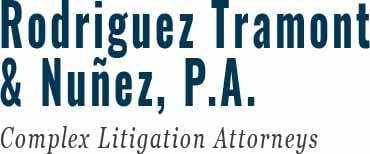Negligence
Financial advisor negligence can be the basis of a securities arbitration claim if the financial advisor fails to adhere to industry standards in the handling of an investor’s brokerage account, and did not act as a reasonable and prudent financial advisor would have acted, and as a result of the negligent act or omission, the investor sustains investment losses.
Financial advisor negligence may be the result of a lack of supervision and training in situations where they are unaware of important information that they reasonably should have known. A brokerage firm can be the subject of a negligence claim for the failure to supervise and adequately monitor the activities in a brokerage account. Negligence claims are usually made in addition to other causes of action in a securities arbitration claim for damages.
You are probably asking yourself whether you have a legitimate claim for damages. You are not sure whether your financial advisor’s negligence was the direct cause of your losses. To consider whether you are the victim of negligent misconduct, consider the following FAQs.
Frequently Asked Questions:
Q: How do I determine whether I have a viable Securities Arbitration Claim?
Q: When my CD came due, I asked my broker to see what investments could pay me a competitive rate of interest with no risk to principal. He recommended municipal bonds with a 20 year maturity date. He stated my principal is safe. During the last quarter, the municipal bond market dropped resulting in losses to my principal. I told my broker I did not want to lose any money, what can I do?
Investments in municipal bonds face various risks including, default risk and interest rate risk. Municipal bonds faced both types during the recent decline in the municipal bond market. The notion that municipal bonds are safe depends on the type of risks you are concerned about. If you hold a municipal bond until maturity there is no interest rate risk, however the price will fluctuate over time. It is important that these distinctions are made when your broker recommends an investment. Your financial advisor was negligent for recommending long term municipal bonds because of you were adverse to any loss in the value of your investment.
Q: I have held a brokerage account for many years with my current financial advisor. The account maintained a significant position in company stock I acquired through my previous employer before I retired. The company stock is worth a fraction of what it was worth when I retired. The company stock paid a good dividend and I did not want to sell and pay taxes. I was later told by a friend that I should have protected myself. I didn’t know anything and still don’t understand what could have been done to protect myself. What are my options?
Brokerage accounts with large positions in a single stock or sector are characterized as concentrated accounts which possess greater risks than diversified accounts. FINRA rules require disclosure of all relevant facts related to accounts held by brokerage firms concerning investments and investment strategies in the brokerage account. In this instance, your investment objective was to collect the dividend and defer paying capital gains taxes. Based on this investment objective, your broker was negligent in his failure to disclose what your options were including risk management strategies for your concentrated stock position. The failure to disclose the risks and recommend risk management strategies may be a cause of action for a securities arbitration claim filed with FINRA.
Q: How do I determine whether I have a viable Securities Arbitration Claim?
Take the Following Steps to Begin the Recovery of Your Investment Losses:
- Contact Our Legal Team to complete a Case Facts Summary
- Schedule a time For an Interview with an Industry Expert
- Gather Critical Case Documents
- Complete Risk Tolerance Assessment
- Assess Account Damages and Financial Advisor Misconduct
- File Statement of Claim for Securities Arbitration

